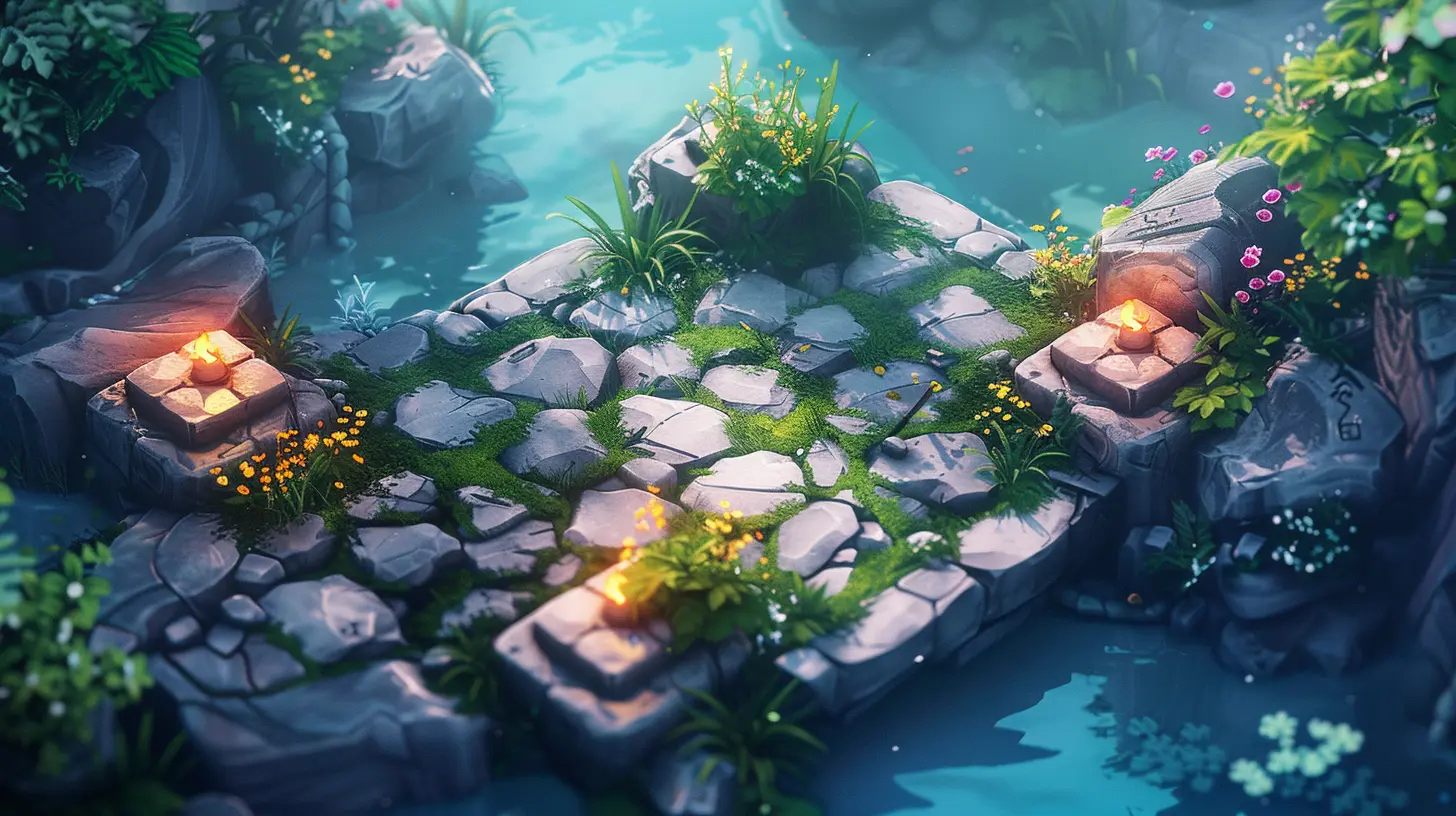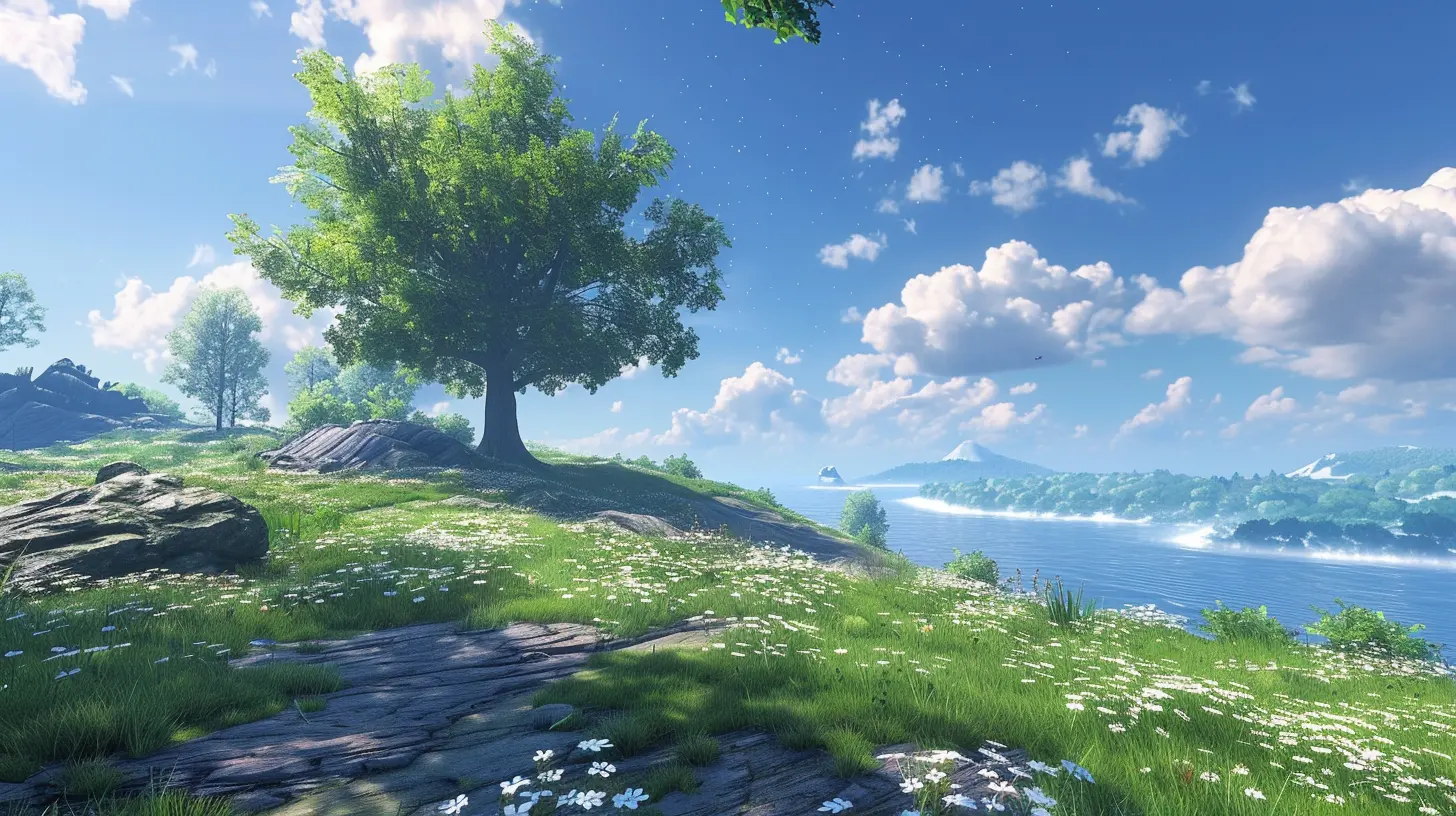Creating a Sense of Progress Without Leveling Systems
7 July 2025
Let’s be honest—leveling systems have been the backbone of player progression in video games for years. From grinding mobs in an MMORPG to racking up experience points in your favorite RPG, “leveling up” has become almost synonymous with progress. But is it really the only way?
What if we could feel that unmistakable rush of achievement without ever seeing a "Level 10" badge pop up on the screen?
We're diving headfirst into this underrated design philosophy—creating a sense of progress without relying on leveling systems. It's not only possible, it's already happening in some of the best games out there.
Why Leveling Systems Aren’t Always the Answer
Leveling systems, while effective, can sometimes feel grindy and artificial. You’ve probably been there—repeating the same tasks just to hit the next level, only to do more of the same. It becomes less about the journey and more about filling up a bar.And here's the thing: not all games need to be about stats and skill trees. In fact, forcing a leveling system into a game that doesn’t need it can break immersion, stall pacing, and flatten the player’s emotional engagement.
So, what’s the alternative?
Reframing Progress: It’s Not Just About Numbers
First off, let’s reshape our definition of “progress.” It doesn't have to mean bigger numbers or longer health bars. Progress can be emotional, narrative-driven, environmental, or even mechanical.Think about it—do you really need XP to feel like you’re getting somewhere? Or is the feeling of conquering a previously unbeatable enemy far more satisfying?
Non-Leveling Progress Systems That Work
Let’s explore some rock-solid ways games have delivered meaningful progress without a single level-up screen.1. Skill-Based Mastery
Some games ditch levels altogether and say, “Hey, if you want to get better, you actually have to get better.”Take _Celeste_ as an example. There’s no XP. No gear upgrades. You, the player, have to master the mechanics. And as you do, you start pulling off insane platforming sequences that felt impossible at the beginning.
This kind of progress is deeply personal. It’s not about stats. It’s about skill. You’re not watching a number go up—you’re watching yourself evolve.
2. Environmental Changes
Nothing screams progress like seeing the world change around you.In games like _Dark Souls_, shortcuts open, bonfires become familiar, and previously deadly areas feel like second homes. You don’t level in a traditional sense—the world becomes smaller as your knowledge and comfort grow.
Progress here is visual. It’s spatial. It’s environmental mastery. The player’s relationship with the world deepens, and that alone is incredibly rewarding.
3. Narrative Advancement
A compelling story can deliver some of the most satisfying progress in gaming.In _Firewatch_, for example, there’s little in terms of mechanical growth. But you feel a sense of movement and development through dialogue and emotional pacing. Relationships evolve, mysteries deepen, and you’re propelled forward by curiosity rather than XP.
This sort of progress appeals to players who value storytelling over stat sheets. It’s immersive, it’s real, and it’s incredibly impactful.
4. Cosmetic Unlocks
Who doesn’t like looking good while saving the world?Cosmetic progression—new outfits, skins, emotes, even home base decorations—can be a powerful motivator. Think _Fortnite_, _Valorant_, or _Animal Crossing._ None of these games depend on leveling in a traditional sense, but they still reward players for exploring, hitting milestones, or completing challenges.
And it’s not just fluff. Personalizing your experience creates emotional investment. It’s the difference between renting a hotel room and decorating your own home.
5. Expanding Gameplay Systems
Another effective way to simulate progress is by introducing new mechanics, tools, or systems as the player advances.In _The Legend of Zelda: Breath of the Wild_, you arguably don’t “level up.” But you gain access to new abilities, gear, and techniques that open up possibilities. Shrines improve stamina and health, but the core loop is defined by freedom and exploration—not grinding XP.
Unlocking new tools gives you more ways to interact with the world. That’s progress. It empowers without ever flashing a “Level 8 Archer” tag.
Why These Systems Feel More Organic
Here’s the secret sauce—non-leveling progress systems feel more natural because they’re often tied directly to the player’s choices, actions, and skill.Levels can sometimes feel arbitrary. Hit enough wolves with your sword, and you’re somehow better at archery? Doesn’t always make sense, right?
But when progress is tied to the things you actually do, it hits differently. It feels earned, not given. That authenticity can create a deeper connection between the player and the game.
Avoiding the Pitfalls: Balance Is Still Key
As compelling as these alternatives are, they come with their own design challenges.- Player Clarity: Without clear XP bars or level indicators, some players might feel lost. They need visual or feedback cues that let them know they're moving forward.
- Pacing: You have to keep introducing new mechanics, challenges, or story beats at the right time. If the game stagnates, so does the sense of progress.
- Motivation: Not all players are intrinsically motivated. Designers must still find ways to keep players engaged, whether through rewards, milestones, or storytelling.
It’s a tightrope walk. But when done right, the payoff is worth it.
Real-World Examples of Progress Without Levels
Let's break down some popular games that nail this idea._Outer Wilds_
This space exploration game thrives solely on player knowledge. The more you understand about the solar system and its mysteries, the further you progress. There are no power-ups, no stats—just you and your growing curiosity._Journey_
The visuals evolve, the music intensifies, your scarf gets longer—but there’s no explicit leveling. Yet the emotional journey feels immense. That’s progress in the purest form._Return of the Obra Dinn_
Here, progress is about deduction. Solving mysteries by piecing together clues draws you deeper into the story. No combat. No leveling. Just brainpower guiding your way.Tips for Developers: Designing Progress Without Levels
If you're a game dev thinking about dropping the leveling system, here are some practical tips:1. Set Clear Goals: Even without XP, players need objectives. Whether it's beating a boss, solving a puzzle, or reaching a location—define success.
2. Visual Feedback: Use sound, motion, UI changes—anything to let players know their actions matter.
3. Reward Curiosity: Encourage exploration by hiding secrets or narrative bits that reward players for thinking outside the box.
4. Grow the Toolbox: Introduce new tools or abilities that let players approach the game in fresh ways.
5. Track Player Growth Subtly: Progress isn’t always loud. Sometimes it’s walking calmly through an area that once scared you silly.
Why This Matters More Than Ever
Modern gamers are savvy. They’ve maxed out levels and prestige systems a hundred times over. Many want something fresh—progress that’s meaningful, not just mechanical.Also, indie games are booming. These developers often lack the resources to build deep stat-based mechanics, so thinking beyond leveling helps them create leaner, more effective designs.
But more than anything, moving away from XP-based progression opens up creative freedoms. Developers aren’t boxed into balance spreadsheets. Instead, they can focus on emotion, immersion, and storytelling.
The Future of Progress in Games
We’re not saying leveling systems are bad—they can be great in the right setting. But it’s time to realize they’re not the only way. The industry is ripe for more nuanced, varied, and player-centric methods of showing growth.Whether it’s emotional arcs, skill development, or environmental mastery, progress is evolving. And players are more than ready to embrace that change.
So, next time you’re designing (or playing) a game, ask yourself: _Does this need a leveling system? Or is there a more creative, more personal way to grow?_
Chances are, the answer may surprise you.
all images in this post were generated using AI tools
Category:
Video Game DesignAuthor:

Francesca West
Discussion
rate this article
2 comments
Ariadne McMurtry
Engaging alternatives to traditional leveling are refreshing!
October 25, 2025 at 4:04 PM

Francesca West
Thank you! I'm glad you found the alternatives refreshing. It's exciting to explore new ways to foster progress!
Delia Luna
This article brilliantly explores alternative ways to foster player progression. It challenges conventional systems, inviting creativity and offering fresh, engaging experiences in game design.
July 14, 2025 at 4:43 AM

Francesca West
Thank you for your thoughtful comment! I'm glad you found the exploration of alternative progression methods engaging.


